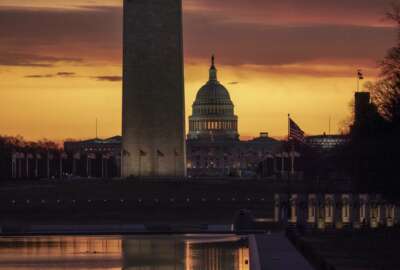

A group of appropriators want the Government Accountability Office to review the Interior Department's decision to use fees to keep some national parks running ...
A few members of Congress are growing increasingly skeptical of the Trump administration’s decisions to reopen certain agency functions as the recent government shutdown dragged on to the longest in U.S. history.
Reps. Betty McCollum (D-Minn.), chairwoman of the Appropriations Subcommittee on Interior, Environment and Related Agencies, and Raúl Grijalva (D-Ariz.), chairman of the Natural Resources Committee, are asking the Government Accountability Office to conduct an official review of certain actions the Trump administration took to keep national parks open during the 35-day government shutdown.
Specifically, both lawmakers want GAO to review whether the Interior Department’s use of Federal Lands Recreation Enhancement Act (FLREA) fees to cover daily operations at the nation’s national parks violated the Antideficiency Act.
The Interior Department didn’t keep national parks open during the 1995 and 2013 government shutdowns.
“Today I’m more than convinced, sadly, that the administration has ignored the law and the policies that the agencies have had in place for years to protect our citizens and our public lands,” McCollum said Wednesday morning at an appropriations subcommittee hearing on the topic. “I believe the decision was made to open up the parks to mitigate the impacts of the Trump shutdown, and I fear that the administration is woefully ignoring the counsel of dedicated men and women who work every day in our parks.”
McCollum also invited other members of the subcommittee to include their concerns and questions in her official request for GAO review. She brought in GAO to brief the subcommittee on the nuances of the Antideficiency Act.
“We’re having this hearing in the spirit of really understanding what they did, why they did it, did they follow plans, and if they did follow plans, do they align with our constitutional responsibility of having the power of the purse, or was it a way to go around us making exceptions?” she said.
Though Democrats and Republicans on the subcommittee may disagree whether national parks should have been kept open during government shutdown, members did agree on this: Understanding Interior’s process and rationale for keeping some functions open and others closed will only grow in importance if the government shuts down again.
The subcommittee posed a wide variety of questions about Interior’s decisions during the government shutdown.


Some members, for example, questioned whether Interior could have considered park sanitation a “health and property” exception under the Antideficiency Act.
Others asked if the department could have legally excepted certain personnel for basic park maintenance during the shutdown. If these National Park Service employees had been allowed to continue their work, the agency could have avoided damage to federal property in the long run, some members argued.
The Antideficiency Act, which Congress first enacted in the 19th century, prevents agencies from:
The Antideficiency Act is the only appropriations statute that includes both criminal and civil penalties for those who violate it, Julie Matta, managing associate general counsel for GAO, told the subcommittee. In GAO’s view, only two federal employees have ever been fired from their jobs for violating the act.
“As far as we are aware, there has never been a criminal prosecution of the act, but it is certainly those potential criminal penalties that make the Antideficiency Act one of appropriations laws that almost all federal employees have heard of,” she said.
There are, of course, exceptions to the Antideficiency Act, which the Trump administration noted in explaining many of the decisions it made during the recent government shutdown. Most notably, agencies can make exceptions for activities that protect health and property, core constitutional responsibilities or an activity that Congress would have intended that agency continue, even during a lapse in appropriations.
GAO on Wednesday didn’t offer any preliminary opinions of Interior’s decisions during the shutdown; it can’t unless Congress specifically asks for a review.
But GAO did give a glimpse into the kind of nuanced questions that it will consider. Matta said her agency will review the purposes of the National Park Service’s general operating appropriations, as well as the statutory purposes for the FLREA.
“Given the breadth of the federal government, Congress is not appropriating dollars for every single line item, and there do arise situations where, arguably, an agency has more than one appropriation for the same purpose,” Matta said. “In those situations what our case law has said is that agencies need to pick and stick with that appropriation. They can only change if they notify Congress through the regular appropriations process.”
McCollum said acting Interior Secretary David Bernhardt explained his decision to use visitor fees after she asked the department for an explanation.
Copyright © 2024 Federal News Network. All rights reserved. This website is not intended for users located within the European Economic Area.
Nicole Ogrysko is a reporter for Federal News Network focusing on the federal workforce and federal pay and benefits.
Follow @nogryskoWFED
